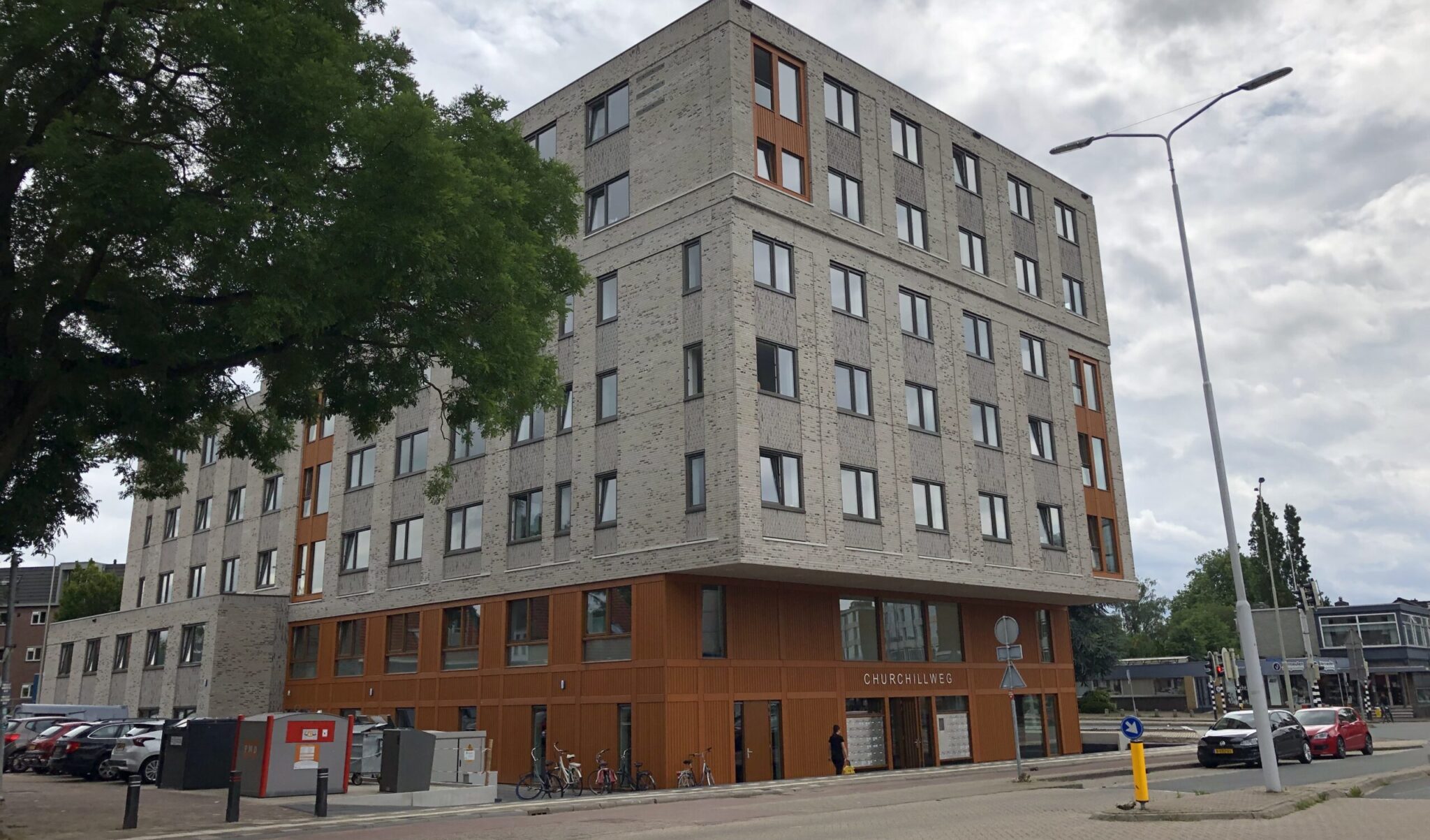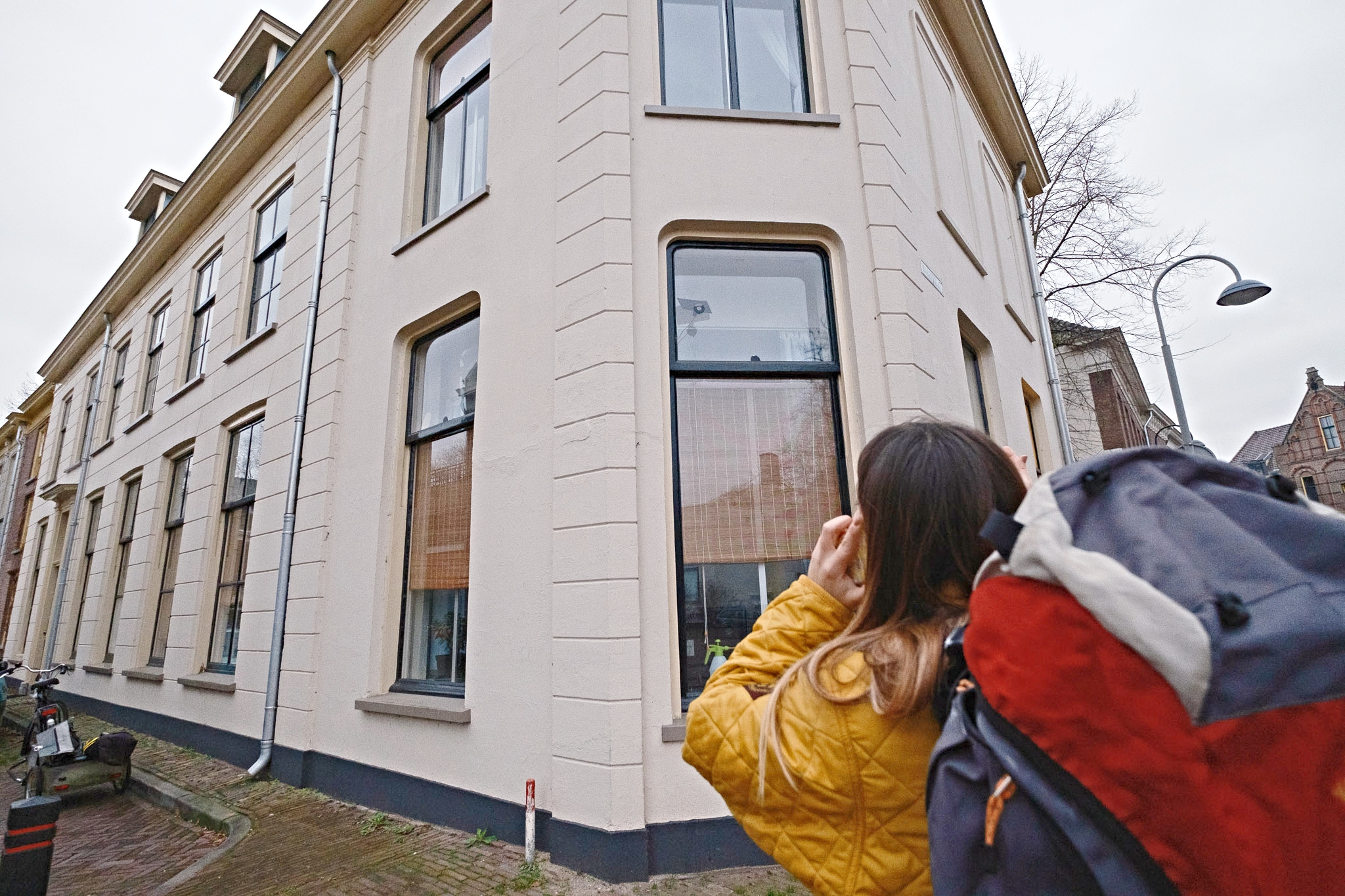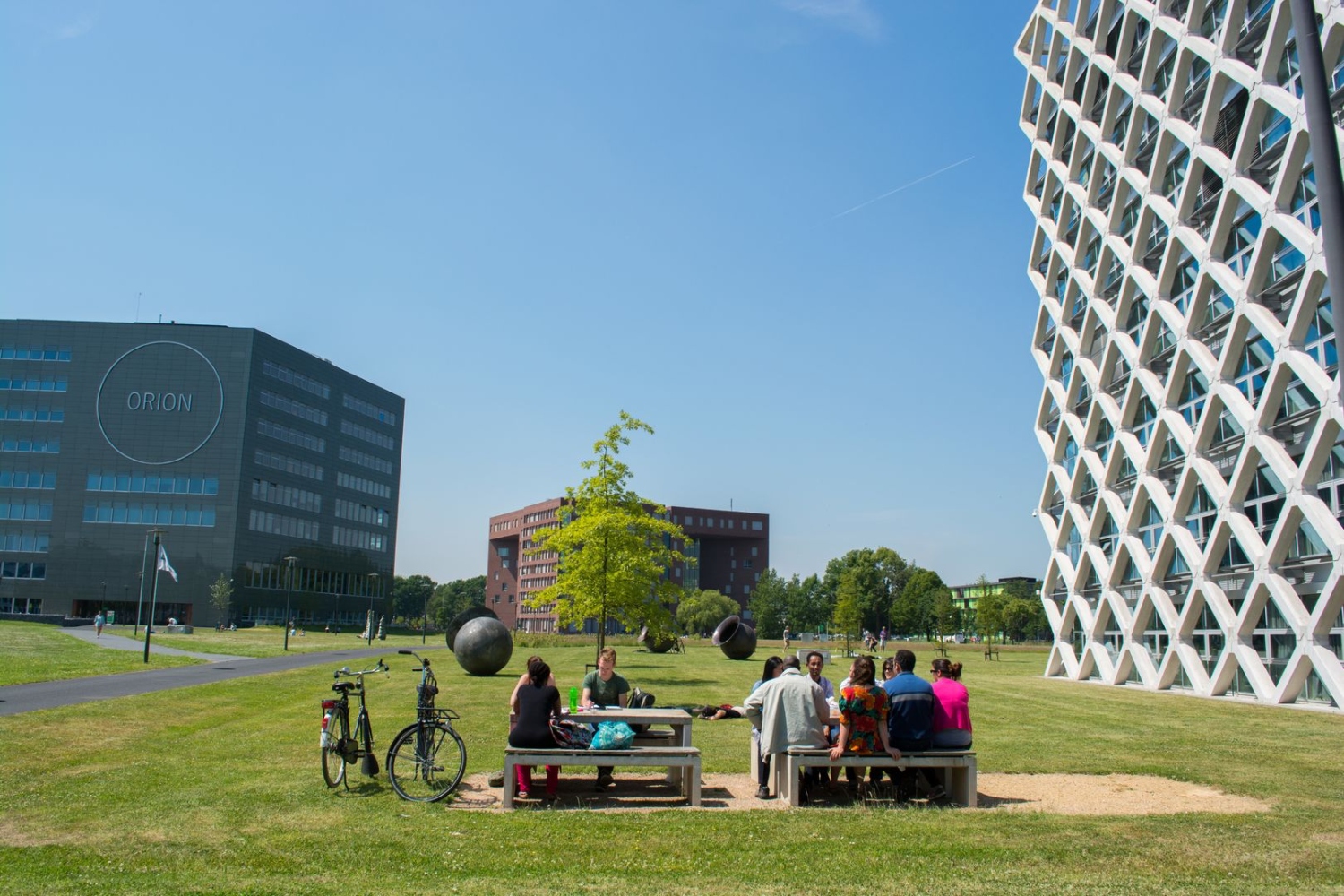The resistance to hot-desking is so strong that here and there plans are being adjusted or even abandoned.
It was busy in the corridors of Lumen and Gaia in August. Carpenters were sawing holes in doors to put windows in them. That makes it possible to see whether there is a space free in the room. Desks were swapped for sit-stand variants. From now on, everyone had to be able to work everywhere. These were the first tangible changes brought by the introduction of the flexible workplace. From now on – with the odd exception – nobody has the right to a room of their own, with their own things around them and sharing with the same colleagues.
It didn’t take long for the backlash to start. At the beginning of October, a petition circulated among staff of the Environmental Sciences Group (ESG) in Lumen and was signed by the vast majority. The message was clear. The flexible workplace the way management is rolling it out wrecks the cohesion and collaboration within the group, condemns PhD researchers to social isolation, and undermines the quality of the work. One of the instigators of the petition was Louren Poorter (Lumen, personal professor of Functional Ecology ). He considers a desk of his own essential to his wellbeing. ‘We’re constantly performing a juggling act , and if I’ve also got to go looking for a place to work every day… It just doesn’t work. I have no wish to run around even more than I already do, looking for desks. Then why should I carry on coming in to work here?’
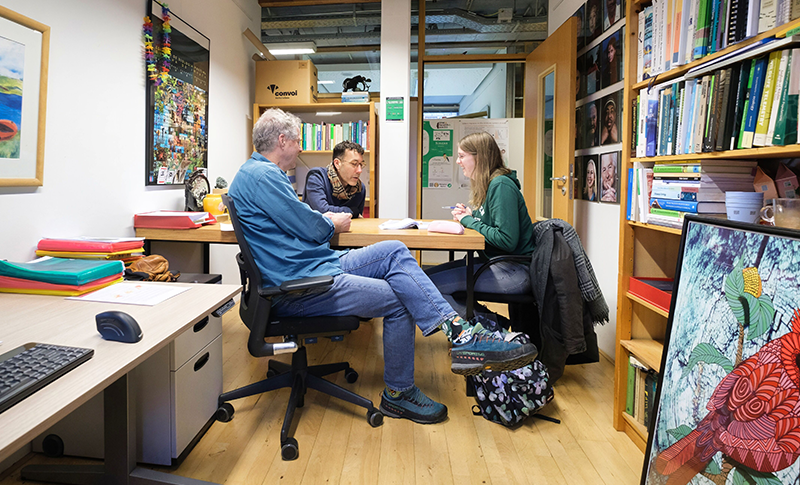
Students
In the ESG plans, the employees will lose 38 per cent of the space they currently have, according to the petition. ‘Whereas staff numbers are actually increasing.’ That enforced cutback comes primarily from the adopted starting point that from now on, there is to be one desk for every two fulltime workers. Also, much more space than before is to be allocated to students working on their theses, in accordance with guidelines issued by the Executive Board. Why, Poorter wonders. ‘A lot of students can work perfectly well on their thesis in the library or at home. If I have to choose between my PhD candidate who needs to be immersed in the research culture or a Master’s student, I give priority to the PhD candidate. Let chair groups decide for themselves where their priorities lie: with their employees or their students.’
In tears
Resistance is not restricted to the ESG. Flexible working has been going on at the Agrotechnology & Food Sciences Group in Helix since last spring, and there too it met with a storm of criticism. A poll on the intranet in April showed that the vast majority (more than 80 per cent) of the staff don’t want to hot-desk. ‘What shocked me most,’ says instigator of the poll Allan van Hulst (Human Nutrition and Health), ‘was the number and the vehemence of the responses on the intranet. Normally a message on the intranet doesn’t get much response, but everyone fell upon that poll. It’s a hot topic. There have been people bursting into tears here because they had to give up their own desk. This is something that really upsets people.’
The strength of people’s feelings about this has to do with dignity, thinks Van Hulst. ‘It’s about being fully appreciated as an employee. Your own desk is part of the recognition that you count as an individual member of staff with your own contribution to the university. I was very shocked by the technocratic way management talked about the flexible workplace. In one discussion, Edith Feskens (chair-holding professor of Global Nutrition) talked about staff taking up a desk. That’s like telling your partner at home that he’s taking up a chair at the dining table. It’s not just about the flexible workplace, but also about communication and the way it is introduced.’
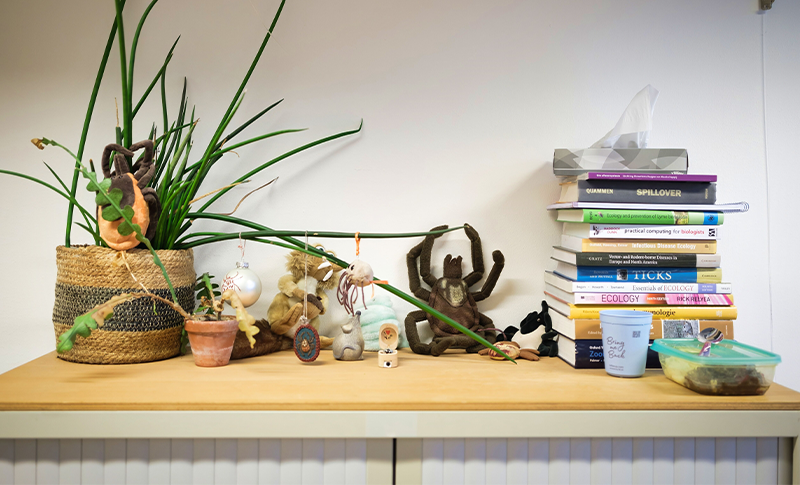
Not the same everywhere
The introduction of the flexible workplace was prompted by WUR’s strong growth. Without expanding, there isn’t enough space to give everyone a desk of their own. And due to home-working, the average desk is collecting dust for more than half the working week. In the eyes of the Executive Board, the flexible workplace addresses both problems. The application of the principle was left in the hands of the science groups, which led to a wide range of approaches and differences in pace. While AFSG and the Plant Sciences Group (PSG) have already got it sorted, the Environmental Sciences Group (ESG) and the Animal Sciences Group (ASG) have only just taken the first steps towards implementation, and at the Social Sciences Group (SSG), the ink on the first sketches hasn’t dried yet.
Leo Marcelis (Radix, chair-holding professor of Horticulture and Product Physiology) heaves a deep sigh when asked about the flexible workplace. ‘If there’s one subject that provokes great frustration, it’s office accommodation. I’ve had endless discussions about it this year! All of them in a negative atmosphere.’ His chair group opted to have five or six people sharing an office. ‘A maximum of four of them can be there at the same time. They have to coordinate that themselves. There are a lot of people who like working at home, but there are also some who don’t. And then people who don’t like hot-desking start working at home for that reason. This generates a lot of negative vibes. The dissatisfaction is enormous.’
The dissatisfaction is enormous
Leo Marcelis (Radix, chair-holding professor of Horticulture and Product Physiology)
But there is a glimmer of hope. The petition submitted by Poorter and his allies has prompted the ESG directors to press the pause button. The space allocated to students is being drastically reduced, says Poorter, and the needs and grievances of staff are being considered afresh. All this should lead to an adapted plan. Poorter is cautiously positive. ‘The question is whether the end result will be a structural improvement. Flexible working still seems a bad idea to me. The real question should be, not what kind of office is the most efficient economically, but what do we need in order to deliver top quality.’
Deprived
The AFSG (or part of it) is making a quiet U-turn now too. ‘We can’t deny that it’s not going well,’ says Renger Witkamp, who is leading a small team tasked with documenting the grievances for Human Nutrition and Health. ‘Our staff have not been consulted enough throughout the process. There’s a strong feeling that the flexible workplace was imposed from above, and that staff have been deprived of something. You are not allowed to personalize your room anymore; decorations are organized centrally and there is a plant policy. That is not popular and we must address that fact. We’ve got to halt the machine that has steamrollered over us. We want to take a bottom-up approach to finding solutions this time.’ For Witkamp, one of the options would be to make employees responsible for a few offices. ‘So you might allocate two offices with eight desks to 10 people. That way you have your own office and maybe even your own desk, if that’s what you agree on among yourselves. I really understand the dissatisfaction when people can’t find each other, or you can only find a spot in a room you don’t want to sit in, or among people you don’t want to be with. Some people didn’t fully realize how losing their own work station can affect someone. I was shocked by what an impact it has on some people. That’s why we’re going to reverse some decisions and organize things really differently.’
‘What strikes me,’ says Poorter, ‘is the top-down way in which WUR went about this, with only vertical lines and no communication about chair groups, departments and the various different jobs people do. No one really listened to the official participatory organs, and no one dares to stand up, speak out and intervene. Pretty shocking, really.’
‘Investing in my quality’
Fred de Boer, former Teacher of the Year and associate professor of Wildlife Ecology and Conservation in Lumen:
‘My job satisfaction, my efficiency and the quality of my work would go down massively if I couldn’t see students in my own room anymore. I dread to think how it will be if that happens. I feel so at home here, and I can work so well here. Look, here’s my diary. Every day is full of consultations with students and PhD researchers. Consultations at this table are my work. It’s what I do. I get it that this is an expensive office in terms of square metres. But that’s an investment in the quality I deliver. People knock at my door all day long. That availability is the quality we deliver in Wageningen. And if I’m not here, anyone else is welcome to sit and work here. Which does happen. To me, having my own room represents appreciation of my work. I see this office as a requirement for my job. I can’t work at home. In the 30 years I’ve been doing this job, I’ve had experience of my own office, shared offices and hot-desking. By now I know exactly what works for me and what doesn’t.’
‘Hot-desking doesn’t work in the academic world’
Marc Naguib, chair-holding professor of Behavioural Ecology in Zodiac
‘I don’t know of any university in the world where a full professor or a tenure tracker doesn’t have their own office. Hot-desking doesn’t work in the academic world. I share this office with a colleague, but we don’t work here at the same time. That’s impossible. Half the time I try and work in the office of someone who’s working at home. I have a lot of consultations and students need to be able to pop in on me, so they need to know where I am. A fixed spot is essential. Hot-desking is so ineffective. Without your own office, effectiveness and quality quickly go downhill. Work satisfaction drops off and that makes people start working at home more. That ruins the whole academic atmosphere in which you easily bump into each other and feel welcome. And a lot of younger staff with small children can’t work at home anyway. So they share an office here and wander around with their laptops. Every day the same question: where can I sit? It will generate an awful lot of stress.’

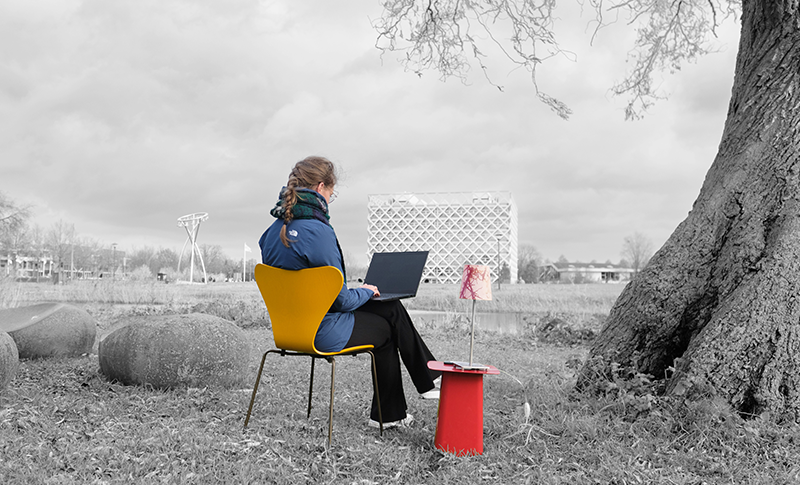 Foto Guy Ackermans
Foto Guy Ackermans 